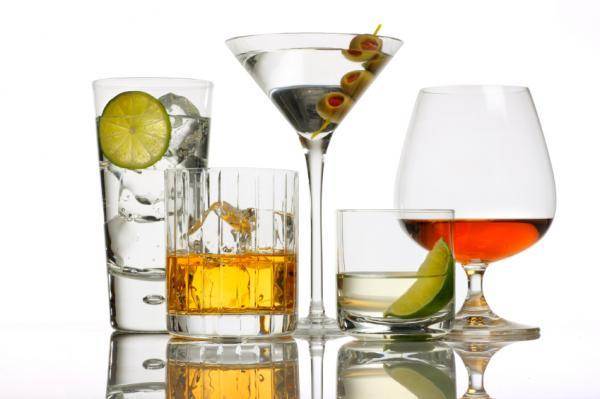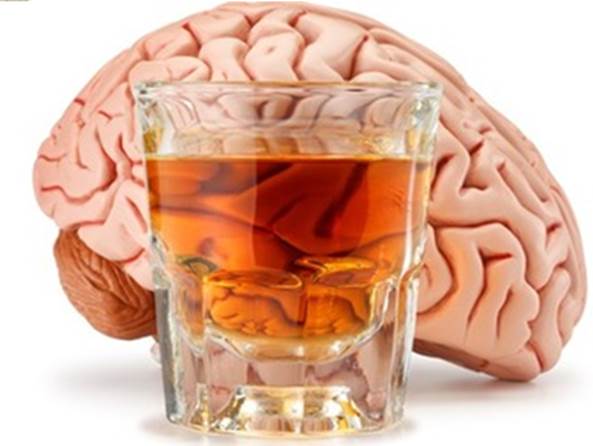We all know that drinking to excess is bad
for our health – but knowing just how it affects our bodies, and what is a safe
quantity, may have you re-evaluating your favourite tipple.
You may have heard of the French paradox,
that is, the low incidence of heart disease and obesity among the French
despite their love of cheese and wine. Some studies have concluded that the
secret is their consumption of red wine and that’s led to it being touted as
something of a health tipple. It’s not unusual for many of us to share a bottle
of wine over dinner but are we really improving our health in the process?
We’ve asked the experts to give us the
lowdown on what we really should know about alcohol and our health.
Alcohol and cancer
The International agency for Research on
Cancer has classified alcohol as a group one carcinogen. That means the link
between alcohol and cancer is as strong as other group one carcinogens such as
tobacco and asbestos, says Professor Ian Olver, CEO of Cancer Council
Australia. “It’s not saying that alcohol causes as many cancers but the
research linking alcohol is very strong. It definitely causes cancer.

Researchers
have identified a cellular pathway that may explain the link between alcohol
consumption and cancer
“Although alcohol has always been linked to
relatively rare cancers like liver, oesophagus and head and neck cancers, it’s
now clear that it’s also a risk in bowel and breast cancer,” says Olver. “In
fact, alcohol is probably implicated in around 22 per cent of breast cancers,
so if you have a family history and want to reduce your risk, you could reduce
alcohol consumption.”
A US study found that even a low level of
alcohol consumption – three to six glasses a week – was associated with a 15
per cent increased risk of breast cancer. Meanwhile, Mexican scientists have
been researching a protein (CYP2E1) found at different levels in breast tissue,
which seems to make women more susceptible to breast cancer if they consume
alcohol.
Alcohol and your brain
“Alcohol on its own is a toxin. We put it
on skin to kill bugs. It kills your brain cells,” says Professor Gordian Fulde,
director of the emergency department at St Vincent’s Hospital, Sydney. “If
you’re sharing a bottle of wine every mealtime, that’s at least three standard
drinks a day and in time that will cause brain deterioration. It’s not
something that kicks in quickly but you’ll notice your concentration and memory
going and people around you will observe you’re not as quick as usual.”

Alcohol
kills your brain cells
Around 2500 Australians are treated for
alcohol0related brain impairment (ARBI) every year, with approximately 200,000
undiagnosed. Around two million Australians are potentially at risk of developing
ARBI as a result of their drinking habits. Alcohol causes brain injury through
falls and accidents, its toxic effect on the central nervous system, the
changes it causes to metabolism, heart function and blood supply, and the way
it interferes with the absorption of vitamin B1 (thiamine), an important brain
nutrient. ARBI is most common in people who drink heavily over a sustained
period but binge drinkers are also at risk.
Alcohol and your gut
If you down a nip of spirits then do a
gastroscopy, you’ll see a little bit of bleeding, says Fulde. “That’s why you
get that hot feeling. It’s not benign.”
Just one drink a day for women, and two for
men, could lead to abnormally large numbers of bacteria growing in the small
intestine. This can prevent absorption of nutrients from food and cause
malnourishment.
It can also lead to bloating, gas,
abdominal pain, constipation and diarrhea, according to a study unveiled at the
American College of Gastroenterology annual meeting in 2011.
Alcohol and your liver
If you do blood tests on someone who drinks
regularly, you’ll find the liver enzymes are raised, which indicates the liver
is suffering a constant trickle of damage, says Fulde. “As you age, with a
damaged liver you’ll age a lot quicker. If you get sick, you’ll be sicker, if
you get a viral infection you’ll be less resilient. It affects appearance,
you’ll have redness on the skin, your hair will lose texture and you won’t be
as fit. There’s a popular belief that the liver regenerates but if you drink
constantly it never has time to heal properly.”
Women don’t metabolise alcohol as well as
men and some metabolise it very, very slowly. “Their liver doesn’t chop up the
alcohol at all,” says Fulde. “They’re the ones who have a few drinks at night,
get pulled up in the morning and are over the limit.”
Alcohol and heart disease
“Studies have shown that people who drink
a moderate amount of red wine regularly have a lower incidence of cardiac
disease than either those who are teetotalers or those who drink more than four
standard drinks a week,” says Dr Rob Grenfell, director of clinical issues at
the Heart Foundation. However, that may be because people who drink in
moderation usually eat, exercise and do other things in moderation. “A lifetime
of moderation and good sense would assist anyone in achieving a longer life,”
says Grenfell.

UCalgary
study finds that moderate consumption of alcohol is good for health
Although scientists have looked for
substances in red wine that decrease heart attack risk, studies so far are
conflicted, says Grenfell. Currently the best proven way to reduce the risk of
heart disease is to quit smoking, exercise, reduce salt and saturated fats in
your diet and have blood pressure and cholesterol levels checked.
Excessive alcohol consumption can increase
the amount of triglycerides in your blood, which can reduce good cholesterol
and increase the risk of heart disease.
Alcohol and weight gain
Alcohol is high in kilojoules – 29kJ per
gram – and has little nutritional value. Two small glasses of wine (200ml)
contain 600kJ, equal to four teaspoons of butter.
Alcohol and sleep
Although alcohol can sedate you and help
you fall asleep, it disrupts sleep during the latter part of the night,
especially for women. Tests have shown they have fewer hours of sleep, wake
more frequently and for more minutes during the night, and have more disrupted
sleep than men.
Alcohol and balance
Alcohol dilates the veins in your abdomen
so there’s less blood circulating, your blood pressure goes down and you feel
light-headed and can fall over. Even small amounts of alcohol can affect the
central nervous system and make you wobbly, so it’s particularly dangerous for
bike riders.
Alcohol and fitness
Alcohol reduces blood flow to the muscles.
That’s why, when you recover from a hangover, you’ll notice your muscles ache.
A British study also found that a night of heavy drinking – around seven
standard drinks, the equivalent of a bottle of wine – affected aerobic
performance by an average 15 per cent. Alcohol can also lead to dehydration and
increased swelling when injured.

Too
much intake of alcohol not only decreases blood flow to the muscles, but also
reduces testosterone levels in the blood while increasing the transformation of
testosterone to estrogen, resulting in increased fluid retention and fat
deposits
Alcohol and violence & death
According to the Australian Bureau of
Statistics, alcohol is the second largest cause of drug-related deaths and
hospitalisations after tobacco and the main cause of deaths on Australian
roads.
Research by the foundation for Alcohol
Research & Education found that almost 70,000 Australians report being
victims of alcohol-related assaults every year including 24,000 victims of
domestic violence.
Red, red wine
Suggestions that red wine can be good for
health are due to resveratrol, a plant chemical with anti-inflammatory,
anti-cancer, anti-bacteria and blood-sugar normalizing effects. It can also
protect against heart disease and decrease the risk of kidney stones and
Alzheimer’s. the best source is red wine grapes. The way the grapes are grown
and fermented affects resveratrol levels.
Resveratrol can also be obtained from red
grape juice (so long as it hasn’t been pasteurized at a high heat and had sugar
and preservatives added) as well as peanuts, blueberries and dark chocolate
with at least 70 per cent cocoa.